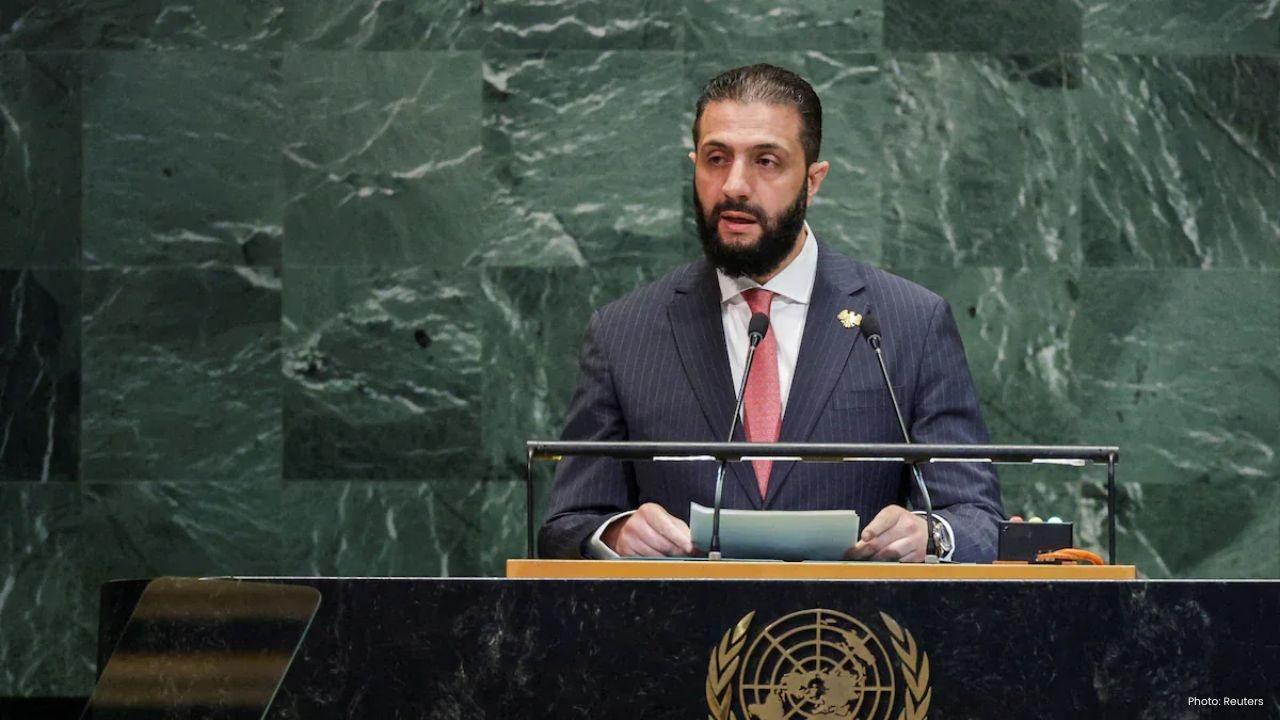
Join 10k+ people to get notified about new posts, news and tips.
Do not worry we don't spam!

Post by : Anis Farhan
The Arctic, long regarded as one of the planet’s final frontiers of pristine ice and snow, has entered uncharted territory. For the first time in recorded history, regions of the Arctic experienced a summer completely devoid of snow cover. This event, which has left scientists alarmed, underscores the growing urgency of global climate change and signals a tipping point in Earth’s fragile environmental balance.
Unlike past summers, where snow would linger well into the warm months, 2025’s Arctic conditions saw unprecedented melting that left entire landscapes bare. This development has not only disrupted local wildlife but also triggered global concerns over the pace of warming, reflecting broader climate challenges that no longer remain confined to polar regions.
At the heart of this transformation are soaring Arctic temperatures, which in recent years have risen at rates nearly four times faster than the global average. Climate experts explain that warmer air currents, fueled by industrial emissions and greenhouse gases, are weakening the region’s ability to retain snow and ice.
With snow acting as a natural cooling mechanism by reflecting sunlight, its absence is set to exacerbate warming even further. Scientists have labeled this as a "feedback loop," where reduced snow accelerates heat absorption, making future snow-free summers increasingly likely.
For Arctic species, the consequences are dire. Polar bears, reindeer, and migratory birds have long relied on snow and ice landscapes for survival. Without snow cover, food patterns shift drastically, leaving species vulnerable. For instance, reindeer depend on snow to access lichen, a critical food source. Similarly, seabirds that time their breeding cycles with seasonal thaw now face mismatched ecosystems.
Fisheries are also expected to suffer, as snowmelt impacts freshwater inflows and nutrient distribution across Arctic waters. Communities that depend on traditional fishing and hunting practices are finding their ways of life increasingly threatened.
The Arctic is often described as Earth’s thermostat, and changes in its climate reverberate worldwide. A snow-free summer could disrupt jet streams, leading to erratic weather events across continents. Already, researchers link reduced Arctic snow to intensified storms in North America, prolonged droughts in Asia, and heatwaves in Europe.
As climate shifts become more extreme, the economic costs of adaptation are predicted to skyrocket. From agriculture to urban planning, governments across the globe may need to recalibrate strategies to cope with increasingly unpredictable weather.
Another alarming consequence of diminished Arctic snow is its connection to rising sea levels. While melting snow itself does not directly raise water levels, its loss accelerates ice sheet decline, particularly in Greenland. Scientists estimate that the combined effect of snow and ice loss could contribute significantly to sea-level rise, threatening coastal cities from Miami to Mumbai.
Ocean salinity and circulation are also being disrupted, influencing marine biodiversity and potentially altering global ocean currents that regulate climate.
Environmentalists describe the snow-free Arctic summer as a warning shot to humanity. The shift is not an isolated phenomenon but part of a cascading series of climate impacts already visible across the globe. From wildfires in southern Europe to record heatwaves in Asia, the signs are growing harder to ignore.
Despite decades of climate negotiations, carbon emissions continue to rise globally, and the Arctic’s transformation serves as a stark reminder of the consequences of inaction. For scientists, this milestone signals that time is running out to prevent irreversible climate damage.
In response to the crisis, several nations are ramping up investment in renewable energy, carbon capture technologies, and conservation projects. However, experts caution that adaptation alone will not suffice; drastic cuts in greenhouse gas emissions are essential.
International collaboration is now seen as critical. Policymakers stress that Arctic changes are not confined to the polar regions but have cascading effects on all nations. Agreements to reduce emissions, protect biodiversity, and build climate resilience will need to be strengthened urgently.
Beyond science and policy, the people of the Arctic are living this crisis in real time. Indigenous communities in Greenland, Canada, and Siberia are witnessing firsthand the collapse of traditions that have endured for centuries. Hunters describe unstable ice making travel dangerous, while villages once shielded by snow are now vulnerable to erosion and flooding.
These communities are increasingly calling for global solidarity, highlighting that the Arctic’s challenges are the world’s challenges. Their voices, once on the margins of climate discussions, are gaining prominence as living testimonies to a rapidly shifting world.
The Arctic’s snow-free summer may become the new normal if urgent action is not taken. Projections suggest that within decades, summers without snow and ice could dominate, reshaping ecosystems and global weather alike. While scientific advancements can help predict these changes, only collective global action can slow their pace.
This historic moment must therefore be understood not just as a local phenomenon but as a turning point for humanity. If the Arctic can lose its snow in a single summer, the rest of the world must recognize the fragility of the systems it depends upon.
This article is for informational purposes only and reflects current scientific reports and expert opinions on climate change impacts. It does not represent definitive predictions but aims to highlight the urgency of environmental awareness and policy action.










Paramount+ to Stream PBR’s 'Unleash the Beast' in New Five-Year Deal
Paramount+ will stream PBR’s 'Unleash the Beast' across the U.S. starting this December under a five

Zohran Mamdani Clinches NYC Mayoral Seat as Victory Speech Blends Politics and Bollywood
Zohran Mamdani won New York City's mayoral race, becoming the city's first Muslim and South Asian ma

India Wins First Women’s World Cup 2025 Title
India lifts its maiden Women’s World Cup 2025 title! Harmanpreet Kaur’s team stuns South Africa in a

Manuel Frederick, 1972 Olympic Bronze Goalkeeper, Dies at 78
Manuel Frederick, a member of India’s 1972 Olympic bronze hockey team, has died in Bengaluru at 78 a

Muhammad Hamza Raja Wins IFBB Pro Card Puts Pakistan & UAE on Global Stage
Pakistani bodybuilder Muhammad Hamza Raja earns IFBB Pro Card in Czech Republic, showcasing Dubai’s

Shreyas Iyer’s Recovery Underway After Spleen Laceration in Sydney ODI
Shreyas Iyer is recovering after a spleen laceration sustained while taking a catch in the Sydney OD